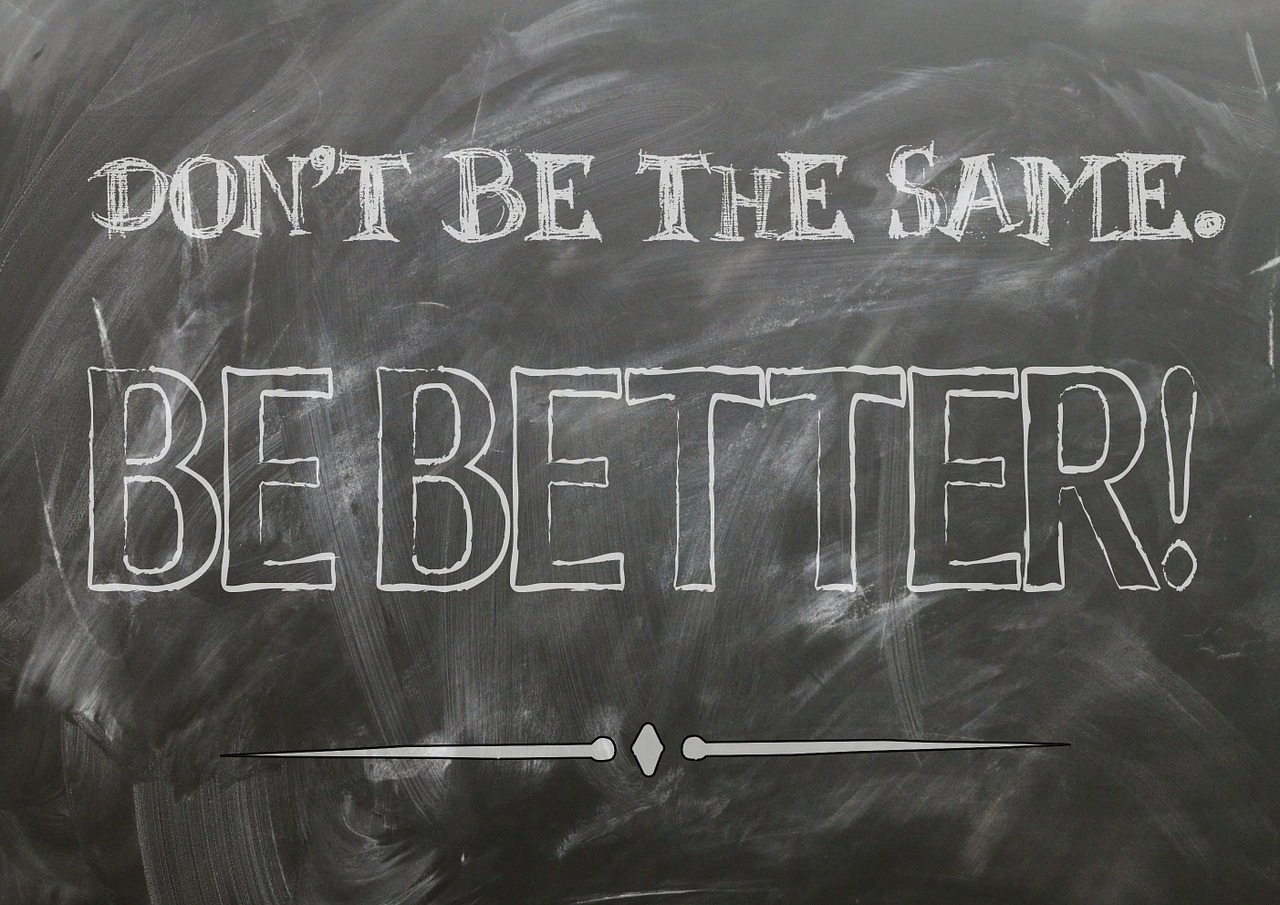Because of the continuously growing complexity of the world that we live in, more and more people suffer from different mental “disorders”, anxiety becoming one of the most common of them.
As a person that has had to deal with anxiety for a large part of my life, I know firsthand how devastating this problem can get, making some of the most basic tasks in life, inexplicably horrifying.
The good news, however, is that you can learn how to deal with anxiety attacks. Anxiety is not something that you have to live with forever. It’s not set in stone, nor is it a prison ball and chain that you will have to drag behind you for the rest of your life. And why do I say this? Because I am living example of a person that has managed to take anxiety so much under control that I hardly ever notice it. It’s become a vague shadow of what it used to be in the past.
This week I was incredibly fortunate to be a guest of Linda Yoonjin and Gabi Petrylaite on their YouTube channel – Brain Education TV, to discuss this incredibly important subject with them – anxiety. On the episode, we talk about what it is and where it comes from, but I also share the story of how anxiety has impacted my life and what were some of the things I did to tame it. I am sure you will find the episode very helpful, so be sure to check it out below!
How to deal with anxiety attacks
In this post, I want to go deeper and share with you my 10 truths on how to deal with anxiety attacks. It’s a list of things that I learned about anxiety, but also about myself over the years that I’ve had to live with it. Keep in mind that I am not a doctor, but I have a story, an experience, and I hope that the information that I am sharing here can make your life easier, more enjoyable, and most importantly, anxiety free.
Truth 1. Avoid alcohol
It’s no secret that many people suffering from anxiety turn to various substances to better cope with the problem, and I was no different.
While it may feel like there is less fear when using pharmaceuticals or alcohol, both of these never actually help you to overcome anxiety. Substances can alleviate your symptoms for a while, but as long as the root cause is not eliminated, anxiety will only be postponed.

If you suffer from anxiety, alcohol should be avoided completely. I say this for two main reasons.
First of all, hangovers can make you “out of it” mentally even if you do not suffer from anxiety. But for people that do, a hangover can become a scene of extreme anxiety, which is incredibly hard to control. I say this from experience. There really is no point in taking risks and doing this to yourself.
Secondly, a person that drinks alcohol to cope with anxiety may fall into the habit of doing it more often than expected. Eventually, running away from your problems with alcohol will make you an alcoholic. Don’t fall into this trap.
Truth 2. Avoid caffeine
Before I learned how to deal with anxiety attacks, I used to drink coffee and then experience some of the most extreme moments of fears. I remember sitting at a lecture, having a cup of coffee as I normally did. Then, all of a sudden, paranoia, followed by tunnel vision and a racing heart. I ran to the toilet to hide, where I would spend the next half an hour. Eventually, I would go home without returning back to classes that day. These episodes, unfortunately, happened relatively often before I understood the connection of fear to coffee. Caffeine is, after all, a stimulant that affects the nervous system.
Even small amounts of coffee made me feel uneasy. I remember sitting at home, becoming anxious. I couldn’t understand what I was anxious about, what the source was. To my surprise, there was no source. I worried about nothing and everything at the same time. It became clear that caffeine needs to be given up completely.
On the side note, now that a lot of time has passed since I’ve been experiencing strong anxiety, I can drink coffee, although not much. I’ve become more sensitive to it.
On the other hand, there are natural substances that can lessen your anxiety attacks and even fight depression. For example, one such substance is called turmeric. Studies show that curcumin, the chemical contained in turmeric, has an antidepressant-like effect and can improve mental health.
Truth 3. It will pass
Understanding that your anxiety is not going to be a part of you forever is extremely precious and important.
I am aware that when you don’t know how to deal with anxiety attacks, and you are constantly experiencing them, it feels like your life has been ruined. I myself thought that I would be cursed forever. These kinds of thoughts come naturally in critical moments, such as during anxiety attacks.

However, what you must understand is that anxiety is not a stamp on your face, nor is it set in stone that you will be this way forever. It’s not a physical disability from birth that some people are so unfortunate to have. No, anxiety is something different. It can become a part of you all of a sudden, but it just as easily can go forever.
Recommended: 5 Tips on How to Overcome the Fear of Future
I spent a lot of time on the internet reading about people’s experiences with anxiety. Many of them said that although they suffered in the past, today they are no longer experiencing these attacks. This information gave me hope and the understanding that I, too, can heal. And you know what? Knowing this made me feel so much better and allowed me to better cope with the attacks.
No matter how difficult it may be for you at the moment, know that if you work on your anxiety and allow time to pass, you will get better. I can assure you that today my anxiety is nothing like it used to be in the past. It’s almost non-existent.
Truth 4. Know your triggers
Often, but not always, anxiety is caused by some very specific events. It can be linked to the time a person served in the military, to childhood abuse, to a family member passing away, etc. As a result of these events, a person may experience an anxiety attack when they see something that reminds them of those events.
For example, a person that was robbed on a night alley may experience anxiety attacks whenever they are alone outside at night. Being outside alone at night is the anxiety trigger.
If you know what trigger causes your anxiety, you have something to work with. You can either try to avoid those triggers altogether or you can weaken them by confronting them.
In the case of the alley example mentioned above, the person could have someone they trust walk behind them on an alley at nighttime to support and help them feel safe. After a while, the person walking behind can distance themselves further and further until they are no longer needed by the other person.
Your fears, anxiety and phobias all can be treated by working with the triggers. The best way to stop being afraid of spiders is to be around them. In my case, I knew that one of my triggers was coffee, so I stopped consuming it.
Click To TweetTough times never last, but tough people do. – Robert H. Schuller
Truth 5. It can’t get any worse
It can’t get any worse is another mantra that you should be repeating when learning how to deal with anxiety attacks.
I remember sitting, waiting for the next episode to happen. I was so afraid of being afraid again. At some point, though, during one of the anxiety attacks, it finally hit me that no matter where and when I experience anxiety, it has reached a certain limit of how bad it gets. I never thought of it that way before.

Sure, the attacks still feel horrible and make me miserable, but I haven’t died yet, nor have I been so out of control to do something very dangerous, I thought to myself. So why should I die now or be totally out of control? It’s been so many years, I know what my anxiety feels like and I know what it leads to – to absolutely nothing.
By understanding and convincing myself that my anxiety cannot get any worse, it actually got better. When the episodes did occur, I simply waited without creating more panic. I let it pass. It was strange, but this realization helped me tremendously. It’s like that dog that barks at you until you no longer care. It sees no reaction from you and walks away.
Truth 6. Breathe deep
Both yoga and meditation have had a huge impact on my life. At the peak of my anxiety, I began to practice these things, both of which taught me how to control my emotions and to lower my fears. I strongly believe that anyone suffering from anxiety should at least try the two.
I do get it though that yoga and meditation require patience and dedication, which is not something that all of us have when things get rough in life. But I do, however, want you to learn one thing right now.
Yoga, as well as certain martial arts, focus a lot on the mind-body connection. They explain that by moving in a certain way, we affect our mind, which is why there are so many different body postures in yoga, also known as “asanas”.
In addition, yoga also explains that when a person feels anxious, they begin to breathe with the upper part of the chest. This is how many of us, busy people in the hectic world, normally breathe. A person that is relaxed or sleeping, on the other hand, breathes deeply, often starting from the lower belly. And this is exactly how you should breathe when you want to relax.
Next time when you feel anxiety creeping up on you, stop for a second and breathe slowly and as deeply as you can, right from your belly. Be aware of your breathing. Soon enough, you will notice how you are becoming relaxed and in control. This takes a little bit of getting used to, but trust me, it does miracles. Also, by focusing on your breathing, you take your mind off of anxiety, which is also very important.
Recommended: Why Meditation Is So Life Changing: 6 Reasons to Meditate Every Day
Truth 7. Don’t hold it in!
This truth regarding how to deal with anxiety attacks is very straightforward. Don’t hold it in!
Find people to talk to. It can be your friends, family or a doctor. Don’t be ashamed of it, anxiety is very common, you are not alone. By speaking to people about it, you let it out of your system, and that helps a lot.
Also, by talking about your problem to others, you are helping them better understand you. They will better know which stressful situations to avoid with you, ones that they have not even considered before. Some of the people you talk to may even offer valuable advice related to anxiety.

Truth 8. Exercise daily
Exercise is essential to living a happy healthy life, and especially important for people that want to learn how to deal with anxiety attacks!
When you exercise, toxins, which harm your body are released more efficiently. Their quick release makes the body healthier, and that positively affects the mind as well. As we all know, mental health is directly linked to your physical health.
In addition, through regular exercise, you also release endorphins, which in turn reduce stress, alleviate pain, improve sleep, help with anxiety and even depression. Overall, exercising daily makes you a happier person, which is why it has become an everyday activity for me. Do not underestimate the impact of exercising on anxiety!
Truth 9. Educate yourself
One of the biggest problems that I had when I first faced anxiety was the fact that I had no idea what it was, whom to talk to and what to say. I was lost for a long time.
Fortunately, I did eventually come across many motivational and self-development books, some of which were about nervousness and anxiety, such as this one: How to Stop Worrying and Start Living by Dale Carnegie. If y0u, too, suffer from anxiety, or you know someone else that does, I highly recommend that you get this book for them. It helped me tremendously!
By studying the subject through books and videos, I learned that anxiety is quite common these days, that people with it do get better, and that there exist many different techniques and methods to counter it. By educating myself, I saw hope and I no longer had to run from it all. I learned how to deal with anxiety attacks the right way.
The bottom line is that the more you know about anxiety, the easier it will be for you to tackle it.
Truth 10. Understand and challenge your anxiety
In the previous truth, I mentioned that I began to read self-development books. Reading them directly helped me with understanding anxiety, but there was also an indirect, less obvious benefit from them. By becoming inspired and motivated to take action, I inevitably began to do so. I created small challenges for myself to overcome. I started with increasing my self-esteem.
In the past, whenever I would see a large crowd of people, I would always walk around. I was too afraid to go through. Now I would force myself to go right through the crowd, no matter how scared I was. And honestly, going outside of my comfort zone was amazing.
As my self-esteem grew, I took on new challenges, such as talking to as many strangers as possible. In the past, this would be a no-go zone for me. But because I was motivated to improve myself, I actually enjoyed this process of overcoming fears.
One of the most extreme fears that I had was the fear of public speaking. I talk about just how bad it got with Linda on the podcast above. But long story short, I realized that instead of fearing public speaking more than anything, I can actually lessen this fear by doing the opposite of what I normally did (running away from it). As a result, I joined Toastmasters to do as much of public speaking as possible! It was an extreme move on my part, yet I did it anyway.
Recommended: Don’t Wait! 5 Real Ways to Overcome the Fear of Public Speaking
The result of me challenging myself and wanting to become better eventually helped me get rid of the many fears that I had, and therefore, a lot of the anxiety. Now when I look back at it, I only wish that I would have started living this way earlier. But hey, I guess we all need our life lessons to learn from.
I hope I have been able to shed some light on this very complicated subject, and now you better understand how to deal with anxiety attacks.
Thank you for stopping by and good luck!
Please click below to subscribe and to follow us on social media:
Click here to follow us via E-mail!
Click here to follow us on Facebook!
Click here to follow us on YouTube!
Click here to follow us on Instagram!
Click here to follow us on Twitter!


 15 Best Inspirational Movies That Teach to Never Give Up
15 Best Inspirational Movies That Teach to Never Give Up
 50+ Best Self-Help Books That Will Change Your Life Forever
50+ Best Self-Help Books That Will Change Your Life Forever
 Short Motivational Stories of Failure and Success That You Must Know
Short Motivational Stories of Failure and Success That You Must Know
 10 Examples Where the Power of Positive Thinking Kicks Ass!
10 Examples Where the Power of Positive Thinking Kicks Ass!
 What to Do When Someone Is Better Than You? – Dealing with Jealousy
What to Do When Someone Is Better Than You? – Dealing with Jealousy

Leave a Reply